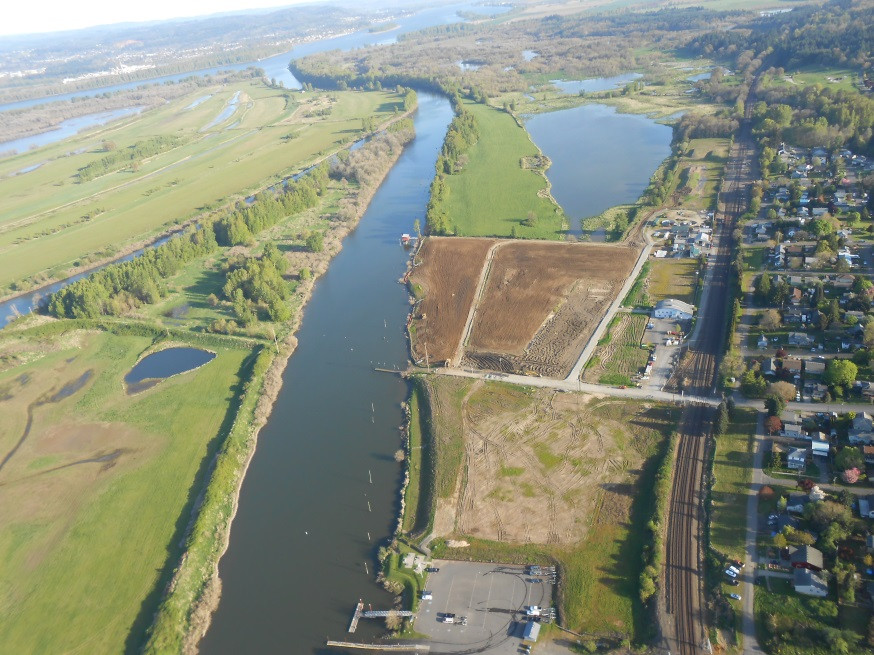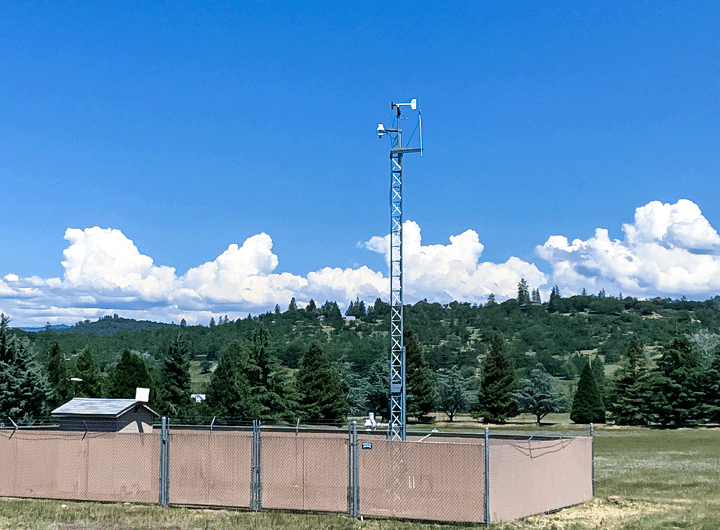Funding
State and Federal Grant Funding Opportunities November 2024

With MFA’s acquisition of Peak Sustainability Group in October 2024, we turn our focus toward climate and sustainability funding, with several grants at the federal and state level open or becoming available soon.
Federal Transportation Funding to Improve Resilience to Natural Hazards and Climate Change
Federal Highway Administration program aims to improve highway, public transportation, port, and intercity rail infrastructure.
The Federal Highway Administration has made available $1.4 billion over five years to help public agencies protect transportation infrastructure from natural hazards, including climate change, sea level rise, flooding, extreme weather events, and other natural disasters. Up to $576 million will be available for applicants that submit requests by February 2025; a second round of funding will provide up to $300 million for applicants that submit requests between October 2025 and February 2026. State and local governments, public transportation authorities, ports, tribes, metropolitan planning organizations, multijurisdictional entities, and others are eligible to apply. Funding may be used for projects such as planning, improving infrastructure resilience, developing evacuation routes and supporting community resilience, and protecting at-risk coastal infrastructure. Eligible infrastructure includes highway, public transportation, port, and intercity rail systems. A 20 percent match is required. Applications are due by February 24, 2025. To learn more, visit the Promoting Resilient Operations for Transformative, Efficient, and Cost- Saving Transportation (PROTECT) page.
Application Period Open for Up to $1.5 Billion in Transportation Grants
USDOT program to provide funding to rebuild transportation infrastructure.
The U.S. Department of Transportation is opening a second round of selection for up to $1.5 billion in funding to improve surface transportation that has significant local or regional impact. Eligible applicants include states, local governments such as counties and cities, federally recognized Indian tribes, special purpose district or public authorities with a transportation function, transit agencies, and multijurisdictional groups. Capital and planning projects that aim to improve safety, environmental sustainability, quality of life, mobility and community connectivity, and economic competitiveness; keep assets in a state of good repair; and foster partnership, collaboration, and innovation are eligible. Eligible projects include highways or bridges, public transportation, rail and port infrastructure, surface transportation facilities, intermodal projects, as well as projects to replace or rehabilitate culverts, prevent stormwater runoff, and improve habitat for aquatic species. A 20 percent match is required except in areas of persistent poverty or for a historically disadvantaged community, for which there is no match requirement. Applications are due January 30, 2025. For more information, visit the Rebuilding American Infrastructure with Sustainability and Equity (RAISE) page.
$24.5 Million for Tribal Transportation Safety Planning
Program aims to reduce deaths and serious injuries due to crashes in tribal areas.
The U.S. Department of Transportation is providing more than $24.5 million to federally recognized tribes to develop strategies, activities, and projects on public roads to correct or improve a hazard or address a highway safety problem. Some eligible project types include the addition of features such as roundabouts and rumble strips; safety improvements for pedestrians, cyclists, or persons with disabilities; traffic-calming features; installation or replacement of signage; safety planning; collecting safety data; and many others. For projects on facilities not owned by a tribe, a letter of support from the facility owner is required. No match is required; however, if the number of qualified applications exceeds the available funding, then applicants that have leveraged funds will receive priority consideration. Applications will be accepted October 1, 2024, through January 15, 2025. To learn more, visit the Tribal Transportation Program Safety Fund website.
$1 Million to Support Sustainable Gardening
Program supports ecological benefits.
The U.S. Department of Agriculture Farm Service Agency is providing $1 million to support community gardens promoting sustainable agricultural practices that benefit people and wildlife. Eligible applicants include cities, tribes, nonprofits, and institutions of higher education that grow gardens using sustainable practices and teach about gardening and resilient food practices. Priority will be given to applications that describe projects that educate and train local communities, provide measurable ecological benefits, and support habitat for wildlife, including migratory birds and pollinators. No match is required. Applications are due January 30, 2025. To learn more, visit the Funding Available for People’s Gardens page.
$9 Million to Benefit Riparian Systems in the Puget Sound Area in Washington
Program can fund new programs or support existing projects.
The Washington State Department of Ecology, in coalition with the Washington State Conservation Commission and Bonneville Environmental Foundation, is providing funding for riparian systems recovery projects and programs. The focus is to protect and restore riparian areas that have been damaged or are struggling to support the plants, animals, and waters of Puget Sound. The program will support restoration programs that work with communities and landowners to improve the overall function of river and stream riparian systems. Awards are anticipated to be between $500,000 and $2.75 million. Eligible applicants include local governments, tribes and tribal organizations, nonprofit organizations, and conservation districts. Eligible project types include collaborative, reach-scale planning and outreach; native planting; incentives for landowners; riparian restoration implementation; maintenance, monitoring, and adaptive management; and permanent protection of riparian habitat. No match is required. Applications are due by 5 p.m. on January 15, 2025. To learn more, visit the Climate Resilient Riparian Systems Grants page.
$1.6 Million Available for Stormwater Master Planning and Implementation in Washington State
Program focuses on benefitting overburdened communities.
The Washington State Department of Ecology is providing approximately $1.6 million for master planning and implementation of stormwater facilities, including stormwater parks that improve water quality and benefit multiple locations in the Puget Sound region. Eligible applicants include local and state government agencies, federally recognized tribal governments, and nonprofit and for-profit entities. Eligible activities include planning for stormwater parks or regional facilities, community engagement and/or feasibility studies to center environmental justice and addressing barriers to implementation. Successful applications will describe how the project improves climate change resilience and adaptation, incorporates tribal treaty rights, and addresses environmental justice issues. Awards of between $100,000 and $500,000 will be made, dependent on the scope of the proposed project. No cost-sharing or match is required. Prospective applicants are encouraged to submit an optional Intent to Apply form by December 6, 2024. Applications are due by December 31, 2024. To learn more and read the guidelines, visit the Stormwater Strategic Initiative Lead page and select the Regional Facilities and Stormwater Parks link.
$2.5 Million Available for Stormwater Master Planning and Implementation in Washington State
Program focuses on benefitting overburdened communities.
The Washington State Department of Ecology is providing up to $2.5 million to support stormwater infrastructure analysis, retrofit planning, and program development. The objective is to support climate resilience analysis on a small scale throughout the Puget Sound region. Eligible applicants include state and local governments, nonprofit organizations, and tribes. Eligible projects include program development, stormwater infrastructure analysis to determine resiliency, and retrofit planning. Successful applications will describe how the project improves climate change resilience and adaptation, incorporates tribal treaty rights, and addresses environmental justice issues. Awards of up to $500,000 per applicant will be made. No cost-sharing or match is required. Prospective applicants are encouraged to submit an optional Intent to Apply form by December 6, 2024. Applications are due by December 31, 2024. To learn more and read the guidelines, visit the Stormwater Strategic Initiative Lead page and select the Climate Resiliency in Stormwater Management link.
Funding for Evaluating Water Conservation, Reuse, and Storage in Oregon
Up to $1.4 million will be available to help water providers conduct feasibility studies.
The Oregon Water Resources Department (OWRD) will fund studies to evaluate the feasibility and costs of developing water conservation, reuse, and storage projects. Up to $1.4 million will be available, pending funding for OWRD’s budget. Eligible applicants include local governments and tribes. OWRD encourages prospective applicants to participate in a pre-application conference prior to submitting an application for funding. A 50 percent match is required. Applications are due March 12, 2025, and application guidance is available now. To learn more visit OWRD’s Feasibility Study Grants page.
Funding for Climate Pollution Reduction Coming to Oregon
Up to $197 million will be available to support climate pollution reduction measures.
The Oregon Department of Environmental Quality (DEQ) is developing a plan to distribute federal Climate Pollution Reduction Grant funding to local governments and tribes to develop plans for reducing greenhouse gas emissions and other air pollution. DEQ anticipates allocating $1 million in the Portland/Hillsboro/Vancouver metropolitan region and developing other programs that will start up in 2025. Sign up for updates and learn more at the Climate Equity and Resilience Through Action Grant page.
Contact
Contact Seth for help with grant application and strategy.




